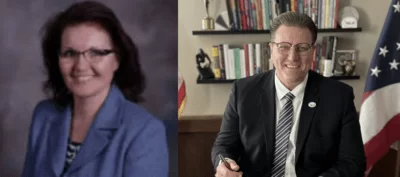MOUNT VERNON – Whether the city should adopt a new pay scale that brings employee salaries in line with other comparable Ohio cities was the subject of a Sept. 20 special meeting of the Mount Vernon City Council.
The issue came up after Auditor Terry Scott and Safety-Services Director Rick Dzik presented a compensation study prepared by Clemans Nelson & Associates of Dublin.
Because the new plan would give the city administration autonomy on determining employee pay – authority currently held by the city council – and loosen their oversight of the city budget, members were unable to reach a consensus.
Scott said a decision needs to be made on how to use the study. A proposal to bring all employees up to the median for their positions’ market averages for salary over three years was included in the report. He said this is a different concept. Previously, the council would get a piece of legislation that lists a new hourly rate or salary that would be a fixed number, he said.
Councilmember Janice Seavolt said she’s not comfortable with giving up the council’s control of wages.
Council President Bruce Hawkins, along with Councilmembers Samantha Scoles, Julia Warga and Tammy Woods, questioned Scott and Dzik about the new plan.
Hawkins suggested the city should use the consultant’s study to benchmark salaries for new employees. The city could then ask the council for permission to offer a salary matching a candidate’s position before making an offer. He said he was open to establishing a salary range for new hires.
Hawkins also asked how this would affect collective bargaining.
Scott said that with collective bargaining, city and union negotiators have always determined comparable wages before negotiations start. The city has never used comparables in the non-bargaining job classifications.
“What's the advantage of taking away from city council and having administration do it?” Hawkins asked.
Dzik said the council would still control the budget and the administration couldn’t give raises if the auditor said the funds were unavailable.
“I do believe that our human resources director, in concert with myself, Mr. Scott and our department heads, are best suited to understand which employees do deserve those raises based on what they've contributed to the city in that amount of time,” Dzik said.
He also said salary ranges were needed to enable the city to hire candidates for utilities director, assistant utilities director and assistant city engineer.
Scoles asked if the maximums set in the compensation study were too high for the city financially.
“It's something that we'll have to grow into, I think, as opposed to leaping into, would be my analysis to you,” Scott said.
He said the city’s tax revenue income this year has been steady compared to the previous year. It’s running about 3% ahead of budget, which he said was not a lot.
In response to her question, Scott said he’s not sure the city can step into the three-year plan to bring all nonunion employees up to the median wages as the study suggests. The first year of the plan would cost the city $86,000.
“I still think we're operating under that COVID effect; nobody can find employees,” Woods said. “So I think it's a bad time to say it's because of our salaries that we can't find people, and that that worries me a little bit to jump into something like this.”
Scoles suggested the council could accept the consultant’s report and have the administration apply its data. Wage increases would still come back before the council for approval.
“I know that the engineering office has needs; needs to be restructured and needs to have a thoughtful plan in place,” Warga said. “I almost wonder if we should focus on that first, before we focus on the restructuring of the pay scale.”
Dzik said the salaries need to align correctly to avoid conflict between positions, experience and certifications.
Warga suggested trying the new plan for one year and then coming back to reevaluate it.
Since the council did not reach a consensus, and to give Dzik time to prepare a presentation on what positions he thinks must be hired immediately and at what salaries, the council scheduled another special committee meeting at 6:30 p.m. on Oct. 4.






